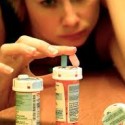Underage drinking
Here are some sobering statistics for Madison County parents.
# Madison County is in the top 10 counties in the state for underage DUI risks, says Patsy Hillard of the National Council on Alcoholism and Drug Dependence of Central Mississippi.
# While the national average is age 13 for children to start using alcohol and the state average is 12, “kids start drinking at age 11 in Madison and Rankin counties,” Hillard said, based on a survey of high school students in the state. Of the 4,509 students in Madison County who participated in the Smart Track survey in 2007, 10.2 percent of local students said they started drinking before age 11 and 17.6 percent started between the ages of 11 and 14.
“Alcohol usage among teenagers is very prevalent in all areas of our community,” said the Rev. Bill Barksdale, who chairs the steering committee of the Madison County Drug Court. “In my fifteen years of youth ministry here in the community, I have met only a small percentage of teens who graduate high school without ever participating in alcohol consumption that puts them at-risk legally or jeopardized their future health.”
The problem of underage drinking exists in every community, not just Madison County, but it’s one that law enforcement officers and drug educators say needs to be addressed.
“Parents think ‘It’s just drinking, at least they’re not on drugs,'” Hillard said.
The Smart Track survey showed statewide that 21 percent of high school students participated in binge drinking (five drinks or more in one sitting) in the past 30 days and 41 percent said they had at least one drink in the previous month, said Caroline Ranck, the underage drinking prevention coordinator for DREAM. “Far more kids drink alcohol than do drugs,” she said.
Alcohol carries its own set of problems for underage drinkers. To name a few:
# There’s the issue of drinking and driving that can can result in a DUI or an accident with injuries or fatalities.
# Drinking can lead to teenage violence, suicides and risky sexual behaviors.
# New research shows that early heavy alcohol use can have negative effects on brain development.
# National studies show people who begin drinking before age 15 are four times more likely to develop a dependency on alcohol than those who take their first drink at 20 or older.
Alcohol poses a direct risk to teens in other ways, Barksdale said. “Teens have to illegally buy it or obtain it. Second, they have to sneak around and drive somewhere remote to use it. Third, teens are more likely to binge drink because of the undercover atmosphere of obtaining and drinking the alcohol and then teens are challenged to somehow arrive home safely at the end of a long night, afraid to call parents when they are in a situation that is over their heads.”
Sheriff Toby Trowbridge said teenage drinking is a growing concern in the county because by starting at a young age “the problem escalates.”
“The perception is if mom and dad do it, it can’t be all bad,” Trowbridge said. “I urge parents with young kids – don’t flaunt drinking in front of your kids. Don’t walk around with a beer in your hands.”
Some parents, however, may be aware of their teens’ drinking and even encourage it, experts say.
“There’s a problem with some moms and dads condoning it or furnishing it,” Trowbridge said. “Parents think if they furnish the alcohol, the kids will stay home and out of trouble but then the party breaks up and everybody goes home.”
“Parents will say ‘They’re going to do it any way. I’d rather have them here than out driving,” said Lt. Brad Harbour with the Madison County Sheriff’s Office, who visits schools regularly to talk about the dangers of alcohol and drugs. “But, when that child grows up and is alcohol dependent or an alcoholic and runs over and kills someone, the people who got them started at a young age are the ones responsible,” Harbour said.
The idea of parents hosting parties and providing beer and liquor for their children and other teenagers is not new, but “I think it’s fare more prevalent than we’re aware of,” Ranck said. “So we as communities have to say this is not OK.”
Madison Police Chief Gene Waldrop said his officers have made arrests at home where parties were going on that parents weren’t aware of and at some where the parents are at home.
Some parents are unwilling to set a higher standard for their teens than their personal standards, Barksdale said. “They rationalize that if they are going to be drinking anyway, they might as well be in plain sight. These parents do not realize the enormous legal liability they assume by allowing underage drinking on their personal property,” he said.
“Rather than make their kids safer by hosting parties, they in fact put more teens at risk. There is no such thing as a ‘small’ party in Madison. Once word gets out that a parent is allowing teens to drink in their home, hundreds of teens will descend upon the house,” Barksdale said.
Madison-Ridgeland Academy is working to keep teenagers from drinking. The school is continuing a program it started at prom last spring by having students use a breathalyzer to gain entry to the homecoming dance next weekend.
“There were absolutely no incidents at prom, and we expect the same results at homecoming,” principal Greg Self said.
MRA is also beginning a new program to educate students about the dangers of underage drinking. Beginning in October, all students in grades 9-12 will take part in an online alcohol awareness program, like is being used at the University of Mississippi, Self said.
“We want to give them information to make wise decisions,” he said.
Next semester the school will do a follow-up program to determine how effect the online program is. “We want to see how it does affect their ability to make decisions,” he said.
“Parents genuinely feel that they are preparing their teens for the reality and pressures of college by allowing them to drink in high school,” Barksdale said. “This again is a false premise, because the longer a teen delays experimenting with alcohol, the more maturity they will have gained, which corresponds with physical development of the brain.
“The more maturity, the less likelihood there is of at-risk behavior,” he said.
_______________
source: Madison County Herald



